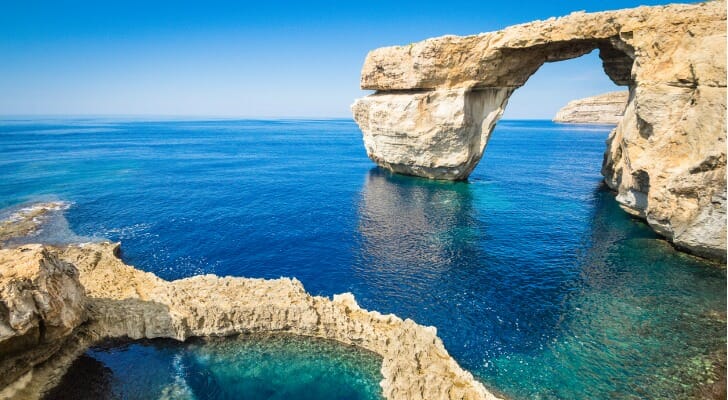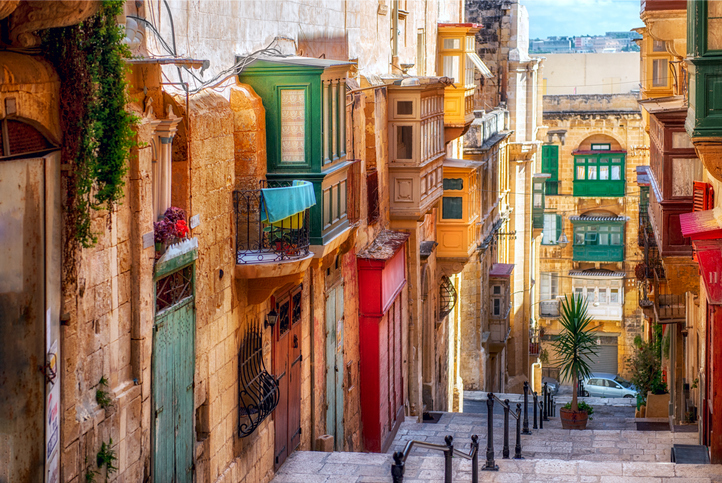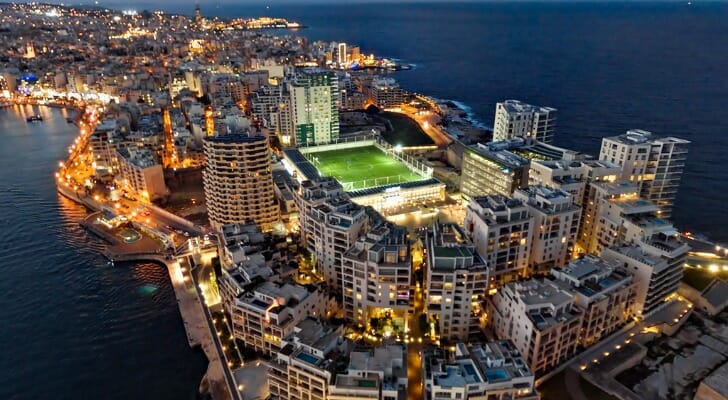Malta is a five-island archipelago located just 100 miles south of Sicily, Italy. As a member of the European Union, this nation boasts vibrant cities and pristine, crystal-clear waters, making it an increasingly popular destination for retirees seeking a picturesque and culturally rich environment. However, before making the decision to retire in Malta, it’s essential to understand the various aspects that come with such a move. From the cost of living to the healthcare and systems, there are several factors to consider. For those contemplating this transition, consulting a financial advisor can help you prepare your finances and ensure a smooth adjustment to your new lifestyle.
Getting a Visa
Perhaps the best visa for American retirees is Malta’s Permanent Residence Programme. It allows you to live, but not work, in the country. This means you can collect retirement income at home, but not work in retirement in Malta. That’s an important distinction to keep in mind as you plan your retirement budget.
This permit grants permanent residency for life, but is investment-based, and not targeted specifically at retirees. Applicants must demonstrate assets totaling either €500,000 (with at least €150,000 in financial assets) or €650,000 (with at least €75,000 in cash or securities) 1 .
Applicants also must buy or rent property in Malta that meets the program’s minimum value requirements 2 :
- Purchase: at least €375,000 in Malta or Gozo; or
- Rent: at least €14,000 per year for five years.
All applicants must also pay 3 :
- A €37,000 government contribution (regardless of whether they buy or rent property),
- A €60,000 administration fee for the main applicant (plus €7,500 for each additional adult dependent),
- A €2,000 charitable donation to an approved Maltese NGO.
A one‑year temporary residence card is now issued after initial checks and payment of a preliminary fee of around €15,000 for applications submitted on or after mid‑2025. The full process generally takes six months to a year and includes due diligence, documentation, and completion of all required investments.
Applicants must also submit proof of a clean criminal record, demonstrate a legitimate source of funds, and obtain health insurance. Those who wish to work in Malta must apply for a separate work permit or license, even after gaining residency. There is no minimum stay requirement to maintain residency, though tax residence is typically based on spending more than 183 days per year in Malta.
Cost of Living in Malta
To retire comfortably in Malta, it’s important to understand the cost of living. According to Numbeo, the cost of living in the United States is 23% higher than in Malta. Accounting for rent, the cost of living in the U.S. is 32% higher than in Malta 4 .
In the U.S., the national average cost for a one-bedroom apartment in a city is approximately $1,730 per month. In Malta, the national average cost for a one-bedroom apartment in a city is $950. One of the most popular cities in Malta for expatriates is Sliema. You can get a one-bedroom apartment in the Sliema city center for approximately $1,000.
Malta Housing

If you are considering a move to Malta, it’s important to understand the home-buying process and what’s involved. The first thing to know is that non-EU citizens must obtain an Acquisition of Immovable Property (AIP) Permit from the Ministry of Finance. This process typically takes about three months. A notary public is necessary and will lodge the AIP on your behalf, and can assist in many other aspects of purchasing a home.
The AIP permit will only allow you to purchase one residential property with the intent to be used by you and your family. There are districts called Portomaso, Tigne Project, Cottonera Waterfront and Charmai on the island of Gozo, in which people can purchase more than one property.
Once you’ve chosen a notary public and have found a property that you want to buy, the next step is to contact the seller or real estate agent to make an offer. Then, your notary will draw up a purchase agreement. Finally, both the buyer and seller agree on all the terms and sign the document.
The purchase agreement is good for three months. During these few months, the notary will submit all the necessary paperwork and check the background of the property. When all their work is finished, they’ll prepare the final deed. Both parties will also need to sign the document. The balance due on the home and stamp tax will be paid at this time.
The buyer is expected to pay 10% of the property’s value at the time of signing for a down payment. A 1% stamp tax will also be given to the notary public, who will, in turn, pay the commissioner of Inland Revenue. Once all the fees are paid and documents are signed, the home-buying process is complete.
Taxes in Malta
When living in Malta, foreigners are only subject to taxes on two types of income. These types are capital gains and income you earn from Maltese sources. Therefore, if you work in Malta, you’ll be taxed on your income. Additionally, if you sell a property for a gain, you’ll be taxed on that income, as well.
As a U.S. resident, you’ll be expected to file taxes in the United States each year. You’ll have to report any foreign bank accounts, as well, and as a resident of Malta, you’ll have to have a Maltese bank account. If you earn any money outside of the U.S., you can use a few different provisions to reduce your U.S. taxable income.
These include the foreign earned income exclusion, the foreign tax credit and the foreign housing exclusion, among others. If you’d like to forecast your tax burden more specifically, you may want to consult with a tax expert who is familiar with both U.S. and Maltese tax laws.
Healthcare in Malta
Malta has both a publicly funded healthcare system and private facilities. The public healthcare system is subsidized by the government and is often referred to as the government healthcare service.
The public healthcare system is free, which is quite different from the U.S. In many countries, people choose to use private healthcare systems because the quality of care is much higher.
People in Malta have access to free primary and emergency care regardless of if the people have state health insurance. Residents have lifetime healthcare rights, however, U.S. retirees who do not pay into Malta’s Social Security system are not automatically eligible for free care.
If you choose to buy a private healthcare insurance plan, costs may range from between €700 and €1,500 annually, depending on age and coverage type 5 .
Safety in Malta
Malta is one of the safest countries in Europe. Personal crimes such as robberies or attacks are very low but are more popular in busy areas such as on buses. Malta’s roads are notoriously in poor condition. As an island country, the beaches are patrolled by lifeguards, thus preventing water-related deaths as well.
Bottom Line

Malta offers a blend of safety, warm weather and the stability of being part of the European Union, making it an attractive option for those considering retirement abroad. With its stunning beaches, vibrant diving spots and rich cultural heritage, including UNESCO World Heritage Sites and modern art scenes, Malta has something for everyone. The island nation also boasts a relatively low cost of living and minimal residency barriers for U.S. citizens, enhancing its appeal as a retirement destination. Whether you’re drawn to its historical charm or the allure of Mediterranean living, Malta presents a well-rounded and inviting option for Americans looking to retire in a picturesque and culturally rich environment.
Tips for Achieving Your Retirement Goals
- Consider talking to a financial advisor about whether you’re financially prepared to retire outside the United States. Finding the right financial advisor that fits your needs doesn’t have to be hard. SmartAsset’s free tool matches you with vetted financial advisors who serve your area, and you can have a free introductory call with your advisor matches to decide which one you feel is right for you. If you’re ready to find an advisor who can help you achieve your financial goals, get started now.
- It’s tough to plan for your retirement if you aren’t sure what kind of costs you’ll have when you retire. To get an idea of what to expect, use our free retirement calculator. You’ll need a few details about where you want to retire, when you want to retire and how much you have in savings.
Photo credit: ©iStock.com/rusm, ©iStock.com/ViewApart, ©iStock.com/liseykina
Article Sources
All articles are reviewed and updated by SmartAsset’s fact-checkers for accuracy. Visit our Editorial Policy for more details on our overall journalistic standards.
- “Malta Permanent Residence Programme (MPRP) 2025: Residency by Investment — Immigrant Invest.” Immigrant Invest, 22 July 2025, https://immigrantinvest.com/permanent-residence-in-malta-en/.
- “Malta Permanent Residence Programme (MPRP) 2025: Residency by Investment — Immigrant Invest.” Immigrant Invest, 22 July 2025, https://immigrantinvest.com/permanent-residence-in-malta-en/.
- “Malta Permanent Residence Programme (MPRP) 2025: Residency by Investment — Immigrant Invest.” Immigrant Invest, 22 July 2025, https://immigrantinvest.com/permanent-residence-in-malta-en/.
- Cost Of Living Comparison Between Malta And United States. https://www.numbeo.com/cost-of-living/compare_countries_result.jsp?country1=Malta&country2=United+States. Accessed 8 Apr. 2025.
- Davenport, Richard. “Retiring in Malta in 2024: Residency Options, Benefits, Cost of Living.” Malta Citizenship & Residency for Investment, 19 Dec. 2024, https://imin-malta.com/blog/retiring-in-malta/.
